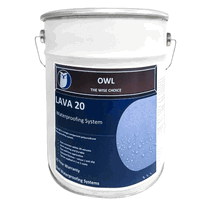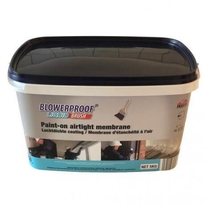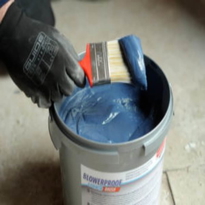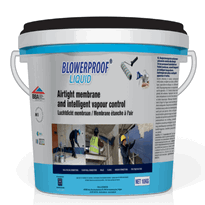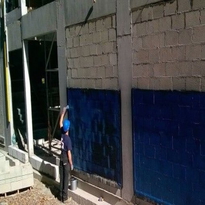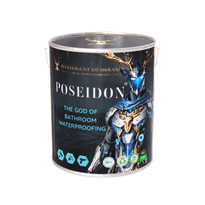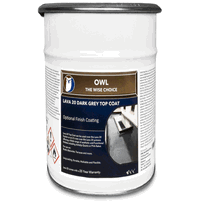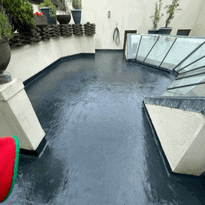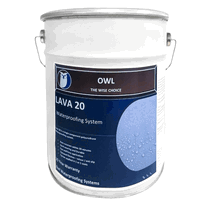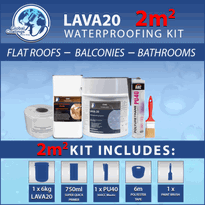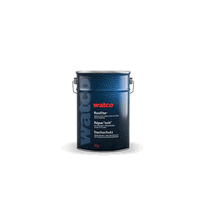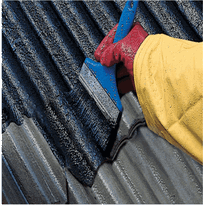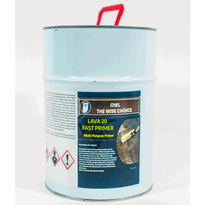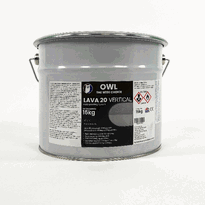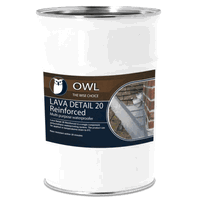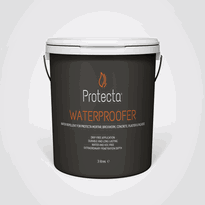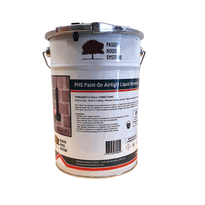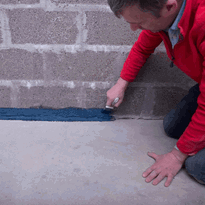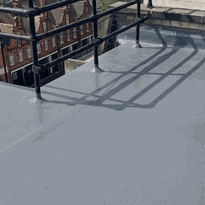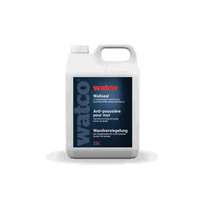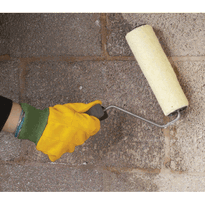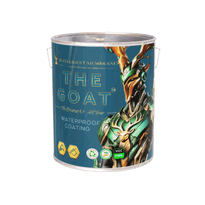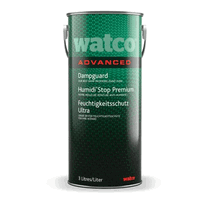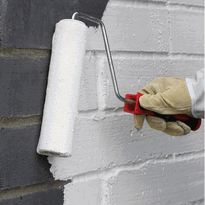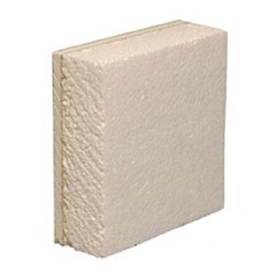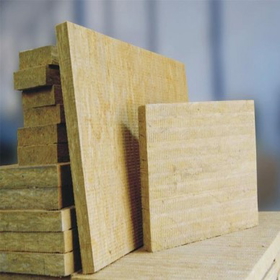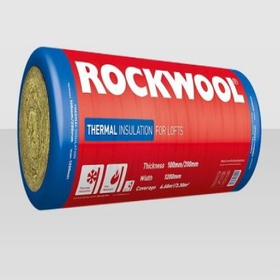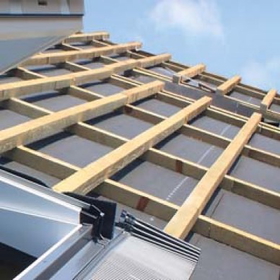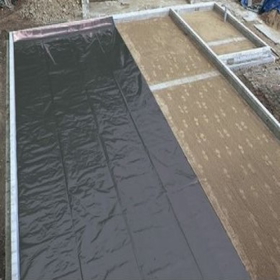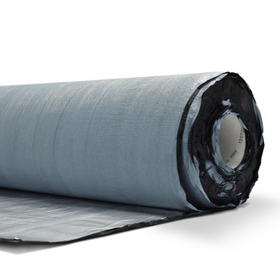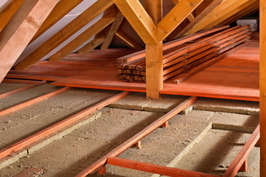Liquid Membranes
Browse from our collection of top-quality liquid waterproof membranes below and should you need any assistance while purchasing vapour control layers online, our experts are just a call away.
Similar Categories
Liquid Membranes: A Guide to Airtight and Waterproof Solutions
Liquid membranes are a type of coating that can be applied to various surfaces to create airtight and waterproof barriers. They are often used in construction and renovation projects to improve the energy efficiency, durability, and comfort of buildings. Liquid membranes can also protect the structures from moisture, air leakage, mould, and corrosion.
In this article, we will explain what liquid membranes are, how they work, what benefits they offer, and how to choose and apply them. We will also introduce some of the best liquid membrane products available from Buy Insulation Online, a leading online supplier of insulation and building materials.
What are liquid membranes?
Liquid membranes are viscous liquids that can be sprayed, brushed, or rolled onto various substrates, such as concrete, wood, metal, or plasterboard. They form a continuous, seamless, and flexible film that adheres to the surface and cures into a durable and elastic membrane. Liquid membranes can be applied in one or multiple layers, depending on the desired thickness and performance.
Liquid membranes can be classified into two main categories: airtight and waterproof. Airtight liquid membranes are designed to seal the gaps and cracks in the building envelope and prevent unwanted air infiltration and exfiltration. They can also act as vapour control layers, which regulate the diffusion of water vapour and prevent condensation and interstitial moisture problems. Waterproof liquid membranes are designed to protect the external surfaces of the building from water penetration and weathering. They can also act as breathable membranes, which allow water vapour to escape and prevent dampness and mould growth.
How do liquid membranes work?
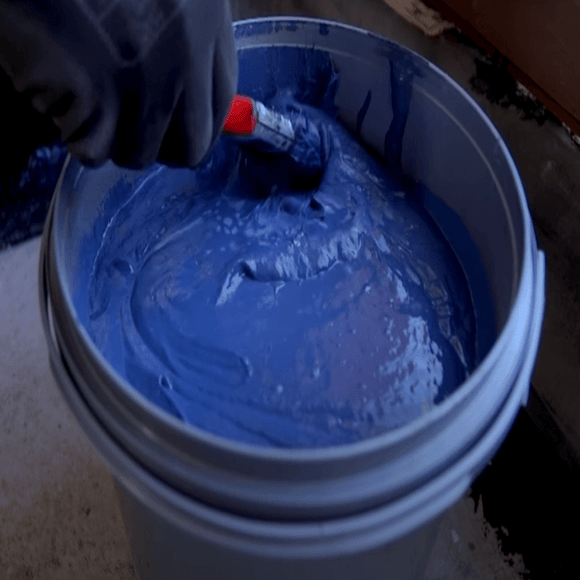 Liquid membranes work by creating a physical barrier that blocks the passage of air and water molecules. They also have chemical and mechanical properties that enhance their performance and durability. For example, some liquid membranes have additives that improve their adhesion, flexibility, resistance, and UV stability. Some liquid membranes also have self-healing properties, which enable them to repair minor damages and cracks automatically.
Liquid membranes work by creating a physical barrier that blocks the passage of air and water molecules. They also have chemical and mechanical properties that enhance their performance and durability. For example, some liquid membranes have additives that improve their adhesion, flexibility, resistance, and UV stability. Some liquid membranes also have self-healing properties, which enable them to repair minor damages and cracks automatically.
Liquid membranes work best when they are applied correctly and uniformly. The surface to be coated should be clean, dry, and free of dust, grease, and loose particles. The liquid membrane should be mixed well before use and applied according to the manufacturer’s instructions and specifications. The curing time and conditions may vary depending on the type and thickness of the liquid membrane, the ambient temperature and humidity, and the ventilation and air circulation. The cured liquid membrane should be inspected for defects and repaired if necessary.
What are the benefits of liquid membranes?
Liquid membranes offer many benefits for both new and existing buildings. Some of the main benefits are:
- Energy efficiency: Liquid membranes can reduce the heat loss and gain through the building envelope and lower the energy consumption and costs for heating and cooling. They can also improve the thermal comfort and indoor air quality for the occupants.
- Durability: Liquid membranes can protect the building structures from deterioration and damage caused by moisture, air leakage, mould, and corrosion. They can also extend the lifespan and reduce the maintenance and repair costs of the building.
- Versatility: Liquid membranes can be applied to various shapes, sizes, and types of surfaces, including curved, irregular, and complex geometries. They can also be used for different applications, such as roofs, walls, floors, foundations, and pipes.
- Ease of application: Liquid membranes can be applied quickly and easily with simple tools and equipment, such as sprayers, brushes, or rollers. They do not require joints, seams, or mechanical fixings, which can create weak points and leakages. They also have low odour and VOC emissions, which make them safe and environmentally friendly.
How to choose and apply liquid membranes?
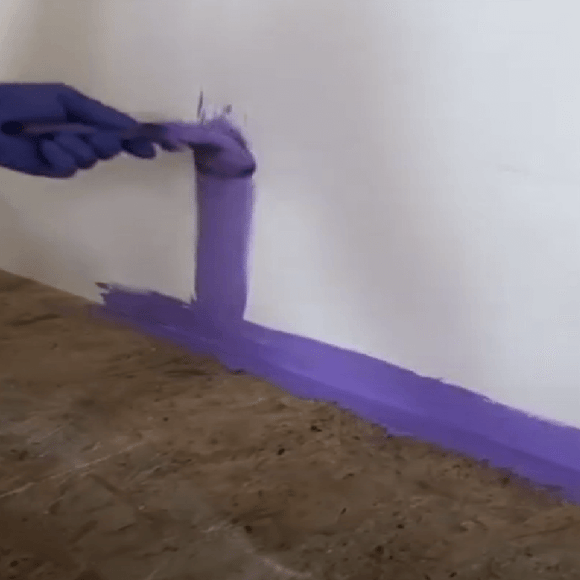 Liquid membranes are available in different types, formulations, and colours, which can suit different needs and preferences. Some of the factors to consider when choosing and applying liquid membranes are:
Liquid membranes are available in different types, formulations, and colours, which can suit different needs and preferences. Some of the factors to consider when choosing and applying liquid membranes are:
- Purpose: The purpose of the liquid membrane determines whether it should be airtight or waterproof and whether it should act as a vapour control layer or a breathable membrane. The purpose also influences the required performance and specifications of the liquid membrane, such as the permeability, elasticity, and resistance.
- Substrate: The substrate is the surface to be coated with the liquid membrane. The substrate affects the compatibility, adhesion, and coverage of the liquid membrane. The substrate should be compatible with the liquid membrane and prepared properly before application. Some substrates may require primers, fillers, or reinforcement materials to enhance the bond and durability of the liquid membrane.
- Application: The application is the method and technique of applying the liquid membrane. The application affects the quality and uniformity of the liquid membrane. The liquid membrane should be applied according to the manufacturer’s instructions and specifications, using the appropriate tools and equipment. The application should also follow the health and safety regulations and guidelines.
What are some of the best liquid membrane products from Buy Insulation Online?
Buy Insulation Online is a trusted online supplier of insulation and building materials, including liquid membranes. Some of the best liquid membrane products from Buy Insulation Online are:
- Blowerproof Airtightness Paint: This is a water-based liquid membrane that can be sprayed or brushed onto various substrates to create an airtight and vapour control layer. It is ideal for sealing the gaps and cracks in the building envelope, such as around windows, doors, pipes, and electrical outlets. It has excellent adhesion, flexibility, and resistance, and can be painted over or plastered.
- Blowerproof Airtightness Membrane: This is a ready-to-use liquid membrane that can be applied with a roller onto various substrates to create an airtight and vapour control layer. It is ideal for large and flat surfaces, such as walls, floors, and ceilings. It has high elasticity, durability, and self-healing properties, and can be covered with plasterboard or insulation boards.
- Passive Purple Airtight Vapour Control Layer: This is a solvent-free liquid membrane that can be sprayed or brushed onto various substrates to create an airtight and vapour control layer. It is ideal for internal surfaces, such as timber frames, masonry walls, and metal decks. It has low permeability, high resistance, and UV stability, and can be left exposed or covered with plaster or paint.
- Passive Purple Waterproof Membrane External: This is a solvent-free liquid membrane that can be sprayed or brushed onto various substrates to create a waterproof and breathable membrane. It is ideal for external surfaces, such as roofs, walls, and foundations. It has high permeability, elasticity, and resistance, and can be left exposed or covered with tiles or cladding.
Conclusion
Liquid membranes are a great solution for creating airtight and waterproof barriers in buildings. They can improve the energy efficiency, durability, and comfort of the buildings, and protect them from moisture, air leakage, mould, and corrosion. They can also be applied to various surfaces and shapes and have low odour and VOC emissions.
At Buy Insulation Online, We offer a wide range of liquid membrane products that can suit different needs and preferences. You can browse our website and order online, and enjoy fast and free delivery, competitive prices, and excellent customer service. Buy Insulation Online is your one-stop shop for insulation and building materials.
